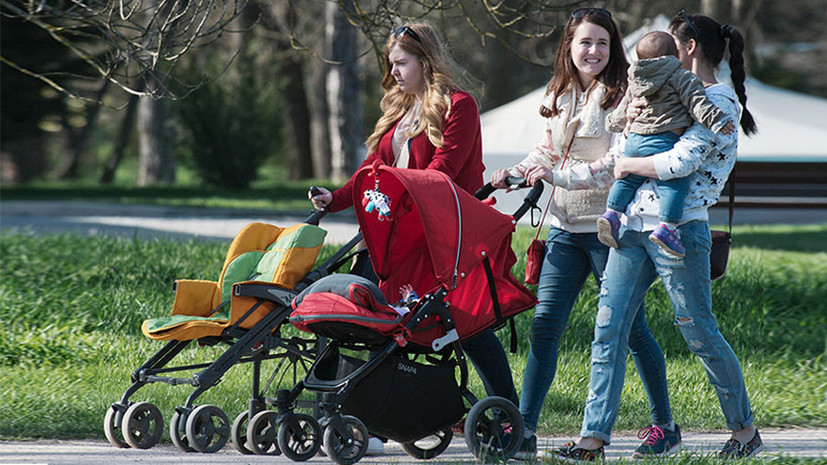On Sunday, May 12, amendments came into force in Russia, simplifying the procedure for registration of benefits for the first and second children. The relevant law was signed by Russian President Vladimir Putin at the beginning of the month. Changes are made to the federal law "On monthly payments to families with children."
Now the Russians can apply for the appointment of payments not only at the place of residence (propiska), but also at the place of actual residence or stay in the territory of the Russian Federation.
In this case, receiving monthly payments, citizens will have to notify the regional social security authorities or the Pension Fund about the change of their residence permit, place of stay or actual residence. Also, data on the assignment of monthly payments for the first child will now be placed in the Unified State Information System for Social Security.
Recall that the benefit for the first and second children is paid if they are born or adopted after January 1, 2018, are citizens of Russia, and the average per capita family income does not exceed one and a half subsistence minimums (for a particular region). At the same time, in the February message to the Federal Assembly, the president proposed raising this bar to two subsistence levels.
“This will make it possible to increase the number of families eligible for additional payments almost one and a half times. About 70% of families where first and second children are born will be able to benefit from the state’s help, ”Putin said.
According to the head of the Social Policy Committee of the Federation Council, Valery Ryazansky, the amendments that have entered into force today do not change the procedure for processing and calculating benefits, but introduce the “extraterritoriality principle” for receiving payments.
“This know-how will make life easier for many Russians. Our fellow citizens are moving around the country, and tying the procedures for processing allowances to the place of permanent registration means creating problems, ”the FBA“ Economics Today ”quotes.
He noted that the legislation adapts to the norms of modern life. In this case, the new amendments guarantee that no one will be deprived of social support due to the fact that they live far from the place of registration - “concepts that are, in fact, atavistic,” Ryazansky stressed.
"The right to help from the state, figuratively speaking, should move after the Russian, wherever he does not move within Russia," the senator added.
In turn, the head of the National Parenting Committee, Irina Volynets, spoke positively about legislative innovations, but noted that at the moment, the registration seriously limits the possibilities of Russians in a number of other areas, and not only in social benefits.
“Definitely, this is a very useful innovation. This measure is important, but there are other fundamental issues. For example, very often in order for a child to go to kindergarten or school, they require registration. And this greatly violates the routine of family life. People can not get all the benefits that they are entitled to. That is, there is a big dependence on a permanent place of residence, and this “institute of registration” very often prevents people. A large family, being in another region, loses the right to all preferences, ”she said.
The interlocutor RT emphasized that no social benefits and benefits should be tied to the place of residence, and the simplification of the procedure for receiving material assistance should be only "one of the bricks of the building to support families", which is now being built.
According to the Vice-Rector of the Academy of Labor and Social Relations, Alexander Safonov, simplifying the procedure for obtaining child benefits is an important step, as Russians often move (or would like to move) in search of better jobs and wages. However, very often social benefits, linked to the place of permanent registration, keep them from such a step. If they decide to move, they are deprived of proper social support.
In an interview with Rossiyskaya Gazeta, the expert also expressed the opinion that further changes would benefit the country, including the unification of social protection and the introduction of uniform social standards for supporting families and children.

